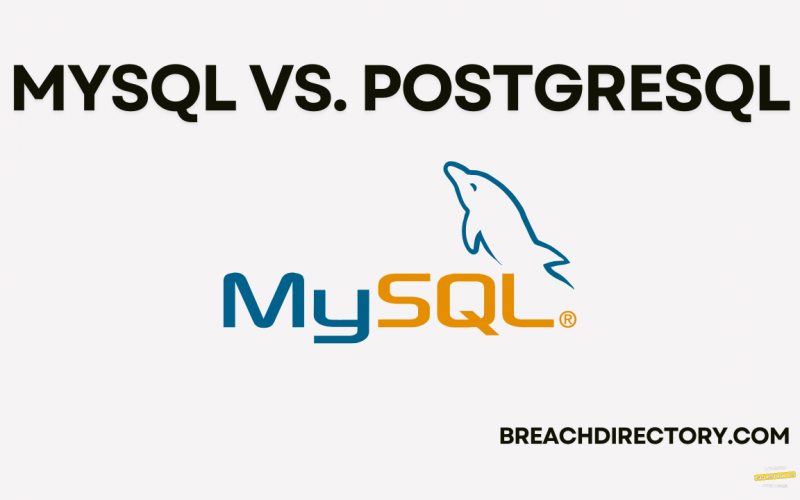What are the similarities and differences between MySQL vs PostgreSQL? Learn with BreachDirectory.com!
According to DB-Engines, both MySQL and PostgreSQL have been, are, and presumably, will remain to be some of the most popular database management systems to this day. PostgreSQL presents itself as “The world’s most advanced open source database”, while MySQL is known for its ease of use, reliability, flexibility, high performance, and security features. When it comes to MySQL vs PostgreSQL, which is the best for your use case? Learn today!
MySQL vs PostgreSQL – Similarities
- Both databases come with a similar set of core functionality including data types, indexing, and other performance, availability, and security features.
- When it comes to MySQL vs PostgreSQL, both database management systems are ACID-compliant.
- Both database management systems support stored procedures, triggers, and views.
- Both database management systems are cross-platform.
- Both database management systems come with an extensive set of backup and recovery procedures.
- Both PostgreSQL and MySQL support foreign keys (MySQL doesn’t support foreign keys in MyISAM.)
MySQL vs PostgreSQL – Differences
- The core difference between MySQL vs PostgreSQL is that MySQL is a relational database (RDBMS) while PostgreSQL is an object-relational database (ORBDMS.)
- Another difference between MySQL vs PostgreSQL is that PostgreSQL comes with an extensive amount of data types. MySQL also provides support for various data types, however, those aren’t as extensive as in PostgreSQL.
- Another difference between MySQL vs PostgreSQL is the indexing capabilities unique to both database management systems. In this regard, PostgreSQL offers more capabilities than MySQL does.
- MySQL and its forks like MariaDB support a wide variety of different storage engines like InnoDB, OQGraph, S3, CONNECT, and the like, while PostgreSQL only supports PostgreSQL as its storage engine of choice.
- MySQL doesn’t support foreign keys in the MyISAM storage engine – PostgreSQL does.
FAQ
When it Comes to MySQL vs PostgreSQL, Which One Do I Choose?
If you run a read-only project that necessitates support for ACID, choose MySQL. If you run an enterprise-level application with frequent read operations or necessitate support for data types or indexing, choose PostgreSQL.
What are Some of the Most Common MySQL Error Messages?
Some of the most common MySQL error messages include the error #1064 that arises when we have a syntax error, the error #1045 denoting an access error (double-check the privileges of the user that ran the query), and others. Read everything about MySQL error messages.
What Storage Engines Are Supported by PostgreSQL?
PostgreSQL supports only one storage engine – PostgreSQL.
